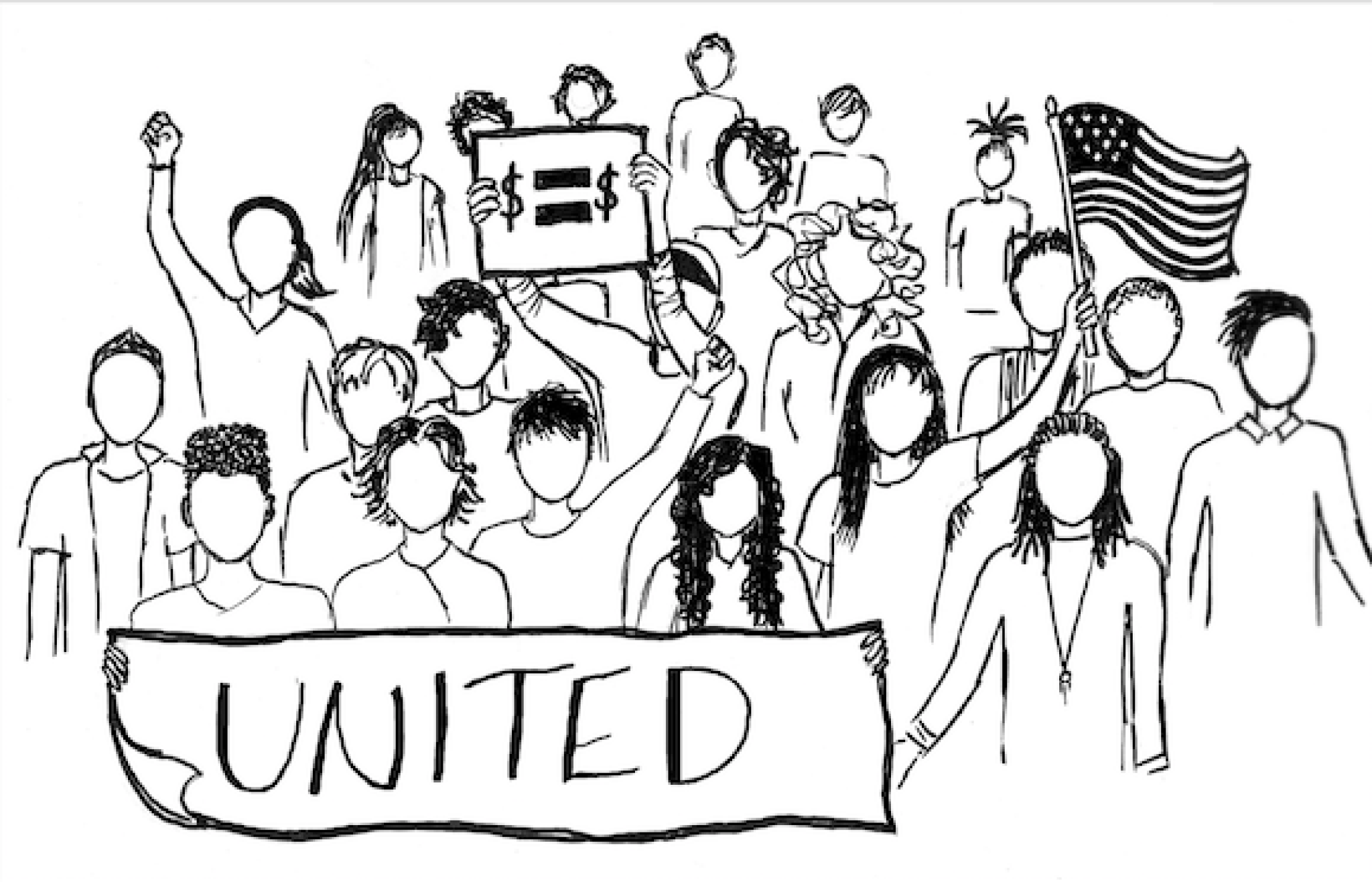Illustration by Kate Greenblatt
On May 1, the date of May Day and International Workers’ Day, workers all over the world protested for workers’ rights. In the Bay Area, Oakland Sin Fronteras organized a protest for workers’ and immigrants’ rights, and the International Longshore and Warehouse Union (ILWU) went on strike. Both Oakland sin Fronteras’ protest and the ILWU’s strike remained peaceful.
Oakland Sin Fronteras hosted speakers who discussed workers’ and immigrants’ rights, and how communities of color in particular feel the need for labor protections.
Yvette Felarca, speaking on behalf of the leftist political group By Any Means Necessary (BAMN), said there were “hundreds of people there ... banners and signs in multiple languages calling for international unity of working people.” Speeches were given by various speakers of marginalized ethnicities, including Tash Nguyen, the senior organizer and advocate at the Ella Baker Center for Human Rights, Cephus Johnson, founder of the “Love not Blood” campaign, and Sharif Zakout, the lead organizer of the Arab Resource and Organizing Center. They addressed “the violence, the harassment they face, profiling … from law enforcement and the impact the Trump administration is having on their communities,” said Mohamed Shehk, the spokesperson for Oakland Sin Fronteras. Shehk said that the marchers reflected the racial diversity of Oakland. He and Felarca, speaker for BAMN, believe that tying the protest for workers’ rights to immigrant rights and racism is important as immigrant communities and communities of color are particularly vulnerable. Shehk believes that the oppressor is the same for various marginalized communities.
“The attacks on workers are coming from people who don’t want workers to organize, don’t want workers to defend themselves, want to pay them less, and it’s the same people, the same forces, that are perpetuating attacks … on all communities,” he said. Felarca said that the focus on immigrants’ rights intensified in 2006. The California Labor Federation endorsed this march and ten other May Day protests across the state. The ILWU went on strike after agreeing to do so with their employers.
Oakland Sin Fronteras was unaffiliated with the strike, but Shehk said they supported it. The strike shut down the Port of Oakland for the day.
Both Oakland Sin Fronteras and BAMN marched for preserving refugees’ and asylum seekers’ temporary protected status from attacks from the Trump administration. Felarca said BAMN also marched for removing Donald Trump and Jeff Sessions from office because of their “terrorization of immigrants.”
Felarca said that this year there were a few hundred protesters at the march. Felarca and Shehk said that focusing on immigrant struggles does not distract from the call for workers’ rights and that May Day protests have historically championed immigrants’ rights. “Any movement for the rights of workers,” Felarca said, “has to also be a movement that stands up against racism and for immigrant rights because one of the main themes and the history behind May Day marches was for international working class solidarity.” Focusing on immigrant communities and communities of color acknowledges the context of intersecting struggle.





